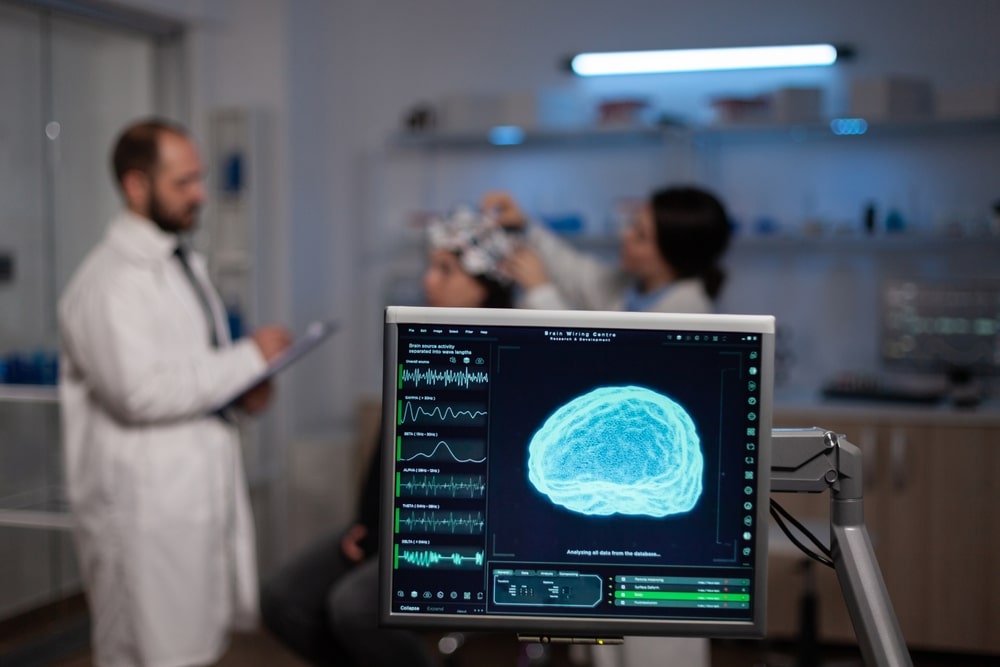Unlocking the Brain’s Mysteries Through the Neuroscience Camp at Drexel
Start a thrilling adventure at the Neuroscience Camp at Drexel, where your passion for the brain meets opportunity. Are you a high school student fascinated by the mysteries of the human mind? This camp is your chance to explore the world of neuroscience in a hands-on, engaging environment.
Here, you’ll find a blend of interactive learning, practical experience, and fun, all designed to ignite your curiosity and enhance your understanding of neuroscience. Get ready to connect with like-minded peers and learn from experts in the field.
If you’re eager to learn more about the brain and its functions, stay tuned for insights into this unique educational adventure. Don’t miss out on this opportunity to step into the world of neuroscience; your journey begins here.
What is the Neuroscience Camp at Drexel?
The Neuroscience Camp at Drexel University offers a unique opportunity for high school sophomores and juniors interested in the human brain and its functions. Located at Drexel University College of Medicine, this camp immerses you in the exciting world of neuroscience, under the guidance of respected faculty members.
Program Overview
This two-week camp introduces you to a comprehensive neuroscience curriculum. It combines lectures, lab projects, and field trips, ensuring a well-rounded educational experience. Here, you will explore various neuroscience topics, from basic anatomy to complex neurophysiology.
Hands-on Learning
The camp emphasizes hands-on learning. You will actively participate in lab projects, applying theoretical knowledge in practical settings. For example, you might record and analyze neural activity, offering insights into brain functions. This approach demystifies complex neural processes and helps you understand how the brain works.
Field trips to research institutions and museums complement your learning, showing you the real-world applications of neuroscience. These experiences not only educate but also inspire, opening new perspectives in the field.
By joining the Neuroscience Camp at Drexel, you will deepen your understanding of neuroscience, develop critical thinking skills, and connect with like-minded peers. This program is more than just a summer camp; it’s a stepping stone to your future in neuroscience or related fields.
Why should you go to the Neuroscience Camp at Drexel?
Drexel University’s Neuroscience Camp offers a fantastic opportunity for high school students who are passionate about the human brain and its mysteries. This program is not just an academic experience; it’s a launchpad for your future success in neuroscience and related fields.
Educational Benefits
In the camp, you’ll explore a broad range of neuroscience topics, providing a comprehensive view of the field. The curriculum introduces you to foundational concepts and delves into advanced topics.
- Cellular Neuroscience: Here, you’ll learn about neurons, the basic unit of the nervous system, and how they communicate. Understanding neuronal communication is crucial for grasping more complex neural functions and disorders.
- Neuropharmacology: This area examines how drugs affect the brain and nervous system. You’ll study both therapeutic and recreational drugs, learning about their impact on brain health and the treatment of neurological disorders.
- Electrophysiology: Electrophysiology focuses on the electrical properties of biological cells and tissues. You’ll get hands-on experience with techniques like EEG and understand how to measure and interpret brain activity, which is essential for diagnosing and treating neurological disorders.
Networking Opportunities
The camp is a golden chance to connect with leading neuroscience experts and educators. These interactions are valuable for mentorship, internships, and career opportunities.
- Connecting with Experts: Learn from renowned professors and researchers, gain insights into the latest neuroscience research, and receive guidance on academic and career paths.
- Peer Collaboration: Collaborate with other like-minded students. This camp is a place to share ideas, collaborate on projects, and build a professional network that will benefit you long after the camp ends.
The Neuroscience Camp at Drexel is an educational journey into neuroscience, offering foundational knowledge, hands-on experience, and networking opportunities. It’s an essential step for high school students interested in neuroscience, paving the way for academic and professional success.
How do you get into the Neuroscience Camp at Drexel?
Gaining a spot in Drexel University’s prestigious Neuroscience Camp is a competitive yet rewarding process, requiring you to showcase your passion and aptitude for neuroscience.
Eligibility and Selection
As a high school sophomore or junior, you have the opportunity to apply if you have a strong background in biology or chemistry. The selection committee closely examines your academic transcripts and recommendation letters to gauge your potential and enthusiasm for neuroscience.
These letters are pivotal; they should come ideally from your science teachers or mentors who can vouch for your curiosity and active engagement with scientific concepts. They play a crucial role in highlighting your academic commitment and intellectual curiosity in the field of neuroscience.
Tips for Success
1. Craft a Stand-Out Application Essay
Your application essay is a crucial component. It’s your platform to express your genuine interest and excitement about neuroscience. Discuss any relevant personal experiences, be it participation in science fairs, personal projects, or unique research endeavors that sparked and fueled your interest in neuroscience. Authenticity is key here; let your genuine curiosity and passion for the field shine through in your narrative.
2. Engage in Extracurricular Activities
Beyond academics, your involvement in extracurricular activities related to science can significantly bolster your application. Participation in a school’s science club, engagement in independent research projects, or attendance at science workshops and seminars demonstrate your commitment and proactive approach to learning more about neuroscience.
3. Showcase Leadership
Leadership qualities can set you apart in the application process. If you’ve had the opportunity to lead a project, organize a science event, or initiate a new science-related activity or club at your school, make sure to highlight these experiences. These instances reflect your leadership skills and your capacity to contribute meaningfully to the neuroscience community.
4. Secure Strong Recommendation Letters
The recommendation letters you submit should come from individuals who are well-acquainted with your academic and scientific capabilities. Teachers, mentors, or supervisors who can attest to your intellectual curiosity, work ethic, and potential in the field of neuroscience are ideal. These letters should offer deeper insights into your character and academic strengths.
5. Stay Informed
Demonstrate your commitment to neuroscience by staying informed about the latest research and developments in the field. Your knowledge of current trends and neuroscience research not only shows your dedication but also prepares you for the advanced level of discussions you’ll encounter at the camp.
Gaining admission to the Neuroscience Camp at Drexel is about demonstrating a balance of academic excellence and a profound passion for neuroscience. It involves showcasing your unique qualities and experiences that align with the field. Your goal is to convince the selection committee that you are not only academically prepared but also genuinely enthusiastic about joining the dynamic and exciting world of neuroscience.
How do you apply to the Neuroscience Camp at Drexel?
When applying to the Neuroscience Camp at Drexel University, it’s essential to focus and pay close attention to detail, ensuring you accurately submit all the necessary components.
Understanding the Application Requirements
Begin by familiarizing yourself with Drexel University’s expectations for camp participants. As a program tailored for high school sophomores and juniors, your application should highlight your enthusiasm and commitment to neuroscience. Emphasize your academic achievements in science subjects and convey your genuine interest in the field.
Preparing Your Application
The first step is to carefully complete the online application form. This is your opportunity to make a strong first impression. Be thorough and honest in your responses, especially when discussing your interest in neuroscience and any relevant experiences, such as participation in science fairs or research projects.
Submitting Academic Transcripts
Your academic transcripts are a critical part of your application. They should be up-to-date and include all relevant coursework and grades. Focus on highlighting advanced coursework in biology, chemistry, or related subjects to showcase your readiness and enthusiasm for neuroscience.
Crafting Impactful Letters of Recommendation
Select recommenders who can attest to your abilities and interest in neuroscience, such as science teachers or mentors from science-related extracurricular activities. Ensure they understand the nature of the Neuroscience Camp so they can tailor their letters to underscore your suitability for this unique program.
Application Timeline and Deadlines
Keep track of the application deadlines, which Drexel University usually announces well in advance. Starting your application preparation early can alleviate stress and contribute to a more compelling application.
Additional Tips for a Strong Application
- Personal Statement: Utilize any personal statement or essay sections to express your passion for neuroscience. Discuss your experiences and what you aim to gain from attending the camp.
- Portfolio of Work: If possible, include a portfolio of your science projects, particularly those related to neuroscience, to demonstrate your skills and interests.
- Stay Informed: Regularly visit the program’s website for the latest updates about the application process.
After Submission
After submitting your application, patience is key. The selection process may take several weeks, so it’s important to remain positive and continue engaging in your studies and neuroscience interests.
Applying to the Neuroscience Camp at Drexel University marks the beginning of an exciting adventure in neuroscience. By preparing thoroughly and showcasing your genuine interest in the field, you can create a standout application. Remember, this camp offers more than just learning opportunities; it’s a chance to become part of a community deeply passionate about understanding the human brain.
How hard is it to get into the Neuroscience Camp at Drexel?
Gaining admission to the Neuroscience Camp at Drexel University is indeed a significant accomplishment for high school students with a deep interest in neuroscience. This program’s reputation for a thorough curriculum and hands-on learning approach makes it a highly sought-after opportunity for those aspiring to delve into neuroscience. However, securing a spot at this prestigious camp is competitive and requires careful preparation.
Understanding the Competition
The selectiveness of the Neuroscience Camp at Drexel reflects its commitment to delivering a top-quality educational experience. This exclusivity ensures that each participant gets the most out of unique opportunities, including interacting with leading neuroscience professionals and acquiring hands-on laboratory experience.
Insights from Past Participants
Former attendees often speak about the camp’s transformative impact. Their experiences underline how the program broadened their understanding of neuroscience and steered their academic and professional paths. Typically, successful candidates are those who not only excel academically but also display a profound curiosity about neuroscience.
Preparing a Strong Application
Showcasing Your Passion
Articulating your enthusiasm for neuroscience is crucial when applying. It’s beneficial to discuss specific areas of interest, relevant experiences in science classes or extracurricular activities, and any personal encounters that sparked your interest in the brain and its workings.
Demonstrating Relevant Experience
While academic excellence in science is key, underscoring related extracurricular activities, like participating in science fairs or clubs, can bolster your application.
Securing Strong Recommendations
Recommendation letters from teachers or mentors who can vouch for your enthusiasm for neuroscience and your proficiency in handling sophisticated scientific concepts are invaluable.
In essence, while the Neuroscience Camp at Drexel University is competitive, a well-crafted application that highlights both your academic prowess and genuine interest in neuroscience can increase your chances of acceptance. The testimonials of past participants and the achievements of alumni demonstrate the camp’s enriching and transformative nature, inspiring future neuroscientists to embrace this unique educational opportunity.
When is the deadline to apply to the Neuroscience Camp at Drexel?
Meeting the application deadline for the Neuroscience Camp at Drexel is a crucial first step in your journey toward exploring the fascinating world of neuroscience. The deadline, typically in early spring, is a key date in your academic calendar, marking the final day for submitting your application. For instance, in 2023, the deadline was set for April 17, which underscores the importance of planning and preparation.
Things to Remember
- Start Your Preparation Early: Begin the application process months in advance. This gives you ample time to gather essential documents, request recommendation letters, and craft a compelling personal statement or essay. Preparing early reduces last-minute stress and allows you to create a more robust application.
- Stay Updated and Responsive: After submitting your application, regularly check your email for any communication from the camp organizers. Quick responses to any requests for additional information are critical. This proactive approach demonstrates your enthusiasm and commitment to the camp.
- Keep Engaging with Neuroscience: Even after the application deadline, stay actively involved in neuroscience-related activities. This not only nurtures your passion but also enriches your profile, especially if you’re accepted into the camp.
- Leverage School Resources: Utilize the help of school guidance counselors. They can offer valuable advice, assist with obtaining transcripts and recommendation letters, and provide support throughout the application process.
- Choose Your Recommenders Wisely: Select individuals who know you well and can attest to your academic prowess and interest in neuroscience. Provide them with enough time to write a meaningful letter. Remember, a hastily written or generic letter is less impactful.
- Craft a Compelling Personal Statement: If the application includes a personal statement, begin working on it well in advance. This is your chance to express your enthusiasm for neuroscience and articulate why you are an ideal candidate for the camp. Authenticity and introspection in your writing can set your application apart.
- Ensure Accurate Academic Transcripts: Make sure your transcripts are up-to-date and accurately reflect your academic achievements, particularly in relevant subjects like biology and chemistry.
By keeping these key points in mind and respecting the application deadline for the Neuroscience Camp at Drexel, you are taking an essential step towards an enriching educational experience. Diligent preparation and adherence to these guidelines will help you stand out in a competitive field of aspiring neuroscientists.
When do you find out about your application to the Neuroscience Camp at Drexel?
Once you’ve sent off your application to the Neuroscience Camp at Drexel University, the anticipation begins. Typically, you can expect to hear back about your application status within a few weeks after the application deadline.
This waiting period is necessary for the selection committee to meticulously review each application. Their goal is to ensure every candidate receives fair and thoughtful consideration, a testament to the camp’s commitment to excellence.
Notification Process
Drexel University communicates the application outcomes through email. It’s crucial to regularly check the email address you provided in your application. This means keeping an eye on your main inbox, as well as your spam or junk folders, to avoid missing this critical update.
The notification email is more than just a simple acceptance or rejection; it often includes valuable feedback or reasons, particularly if your application is not successful. Such insights can be beneficial for future applications or educational endeavors.
Post-Acceptance Steps
Getting accepted into the Neuroscience Camp is a significant achievement and the start of an exciting educational adventure. After receiving your acceptance, you will be guided through several important steps to ensure a seamless transition into the camp experience.
1. Engage with Preparatory Materials
One of the first steps involves delving into preparatory work or reading materials provided by the camp. This is your chance to get a head start on the camp’s comprehensive curriculum. These materials usually cover fundamental concepts in neuroscience and might include an introduction to the lab techniques you’ll be exploring. Familiarizing yourself with these topics in advance can give you a significant edge and ensure you’re well-prepared for what’s to come.
2. Complete Remaining Documentation
Next, you’ll need to take care of any outstanding documentation. This might include submitting consent forms, providing medical information, or updating your academic records. Timely submission of these documents is crucial for confirming your spot at the camp.
3. Familiarize Yourself with the Camp Schedule
You will also be provided with details about the camp’s schedule. This includes information on the start and end dates, the daily routine, and any special events or activities planned. If you’re traveling from out of town, you’ll receive guidance on accommodation and dining options. It’s important to review all this information carefully to help you plan your stay and make the most of your time at the camp.
4. Attend the Pre-Camp Orientation
Finally, there’s often a pre-camp orientation session. This is an invaluable opportunity to meet your instructors and fellow campers ahead of time. The orientation may include introductory workshops or seminars, designed to help you acclimate to the camp’s environment and set clear expectations for the exciting journey ahead.
In essence, the post-acceptance phase is a critical time for preparation and engagement. By actively participating in this phase, you can ensure a smooth start to your experience at the Neuroscience Camp, paving the way for a transformative and enriching educational journey.
Where is the Neuroscience Camp at Drexel?
The Neuroscience Camp finds its home at Drexel University’s Queen Lane Campus, nestled in the heart of Philadelphia. This campus, part of the College of Medicine, is more than just an educational facility; it’s a harmonious blend of historical richness and modern advancements in medical science.
Explore State-of-the-Art Campus Facilities
At Queen Lane, the laboratories are equipped with cutting-edge technology, akin to professional research environments. Here, you’ll not only apply the theories learned in lectures but also have the unique opportunity to conduct experiments using tools and techniques at the forefront of neuroscience research. This hands-on experience in such advanced labs is a rare and invaluable aspect of the camp.
Engage in Collaborative Learning Spaces
The campus is designed not just for individual learning but for collaboration and discussion. Interactive lecture halls and common areas foster a dynamic environment where you can engage with peers and faculty, exchanging ideas and deepening your understanding of neuroscience. The lecture halls are frequent venues for presentations by renowned faculty and visiting experts, offering diverse perspectives on various neuroscience topics.
Immerse Yourself in a Campus Rich in History
Walking through Queen Lane, you’re treading paths steeped in history. The campus embodies Drexel University’s longstanding tradition of medical education and research excellence. This historical backdrop adds a unique dimension to your educational experience, connecting you to the legacy of past medical breakthroughs and innovations.
Access Drexel University’s Wide Array of Resources
Beyond the immediate campus, you have access to Drexel University’s extensive resources. The university’s libraries offer a wealth of scientific literature and digital resources, indispensable for your research and learning during the camp. These tools will not only support your camp projects but also enhance your overall understanding of neuroscience.
Discover Philadelphia’s Scientific and Cultural History
Philadelphia, with its rich legacy in science and medicine, serves as an extended classroom. The city is home to numerous museums, historical sites, and scientific institutions that offer additional learning opportunities. These off-campus experiences complement your on-campus education, providing a well-rounded view of the field of neuroscience.
Enjoy a Safe and Accessible Campus
At Queen Lane, your safety and well-being are a top priority. The campus is designed to be secure and welcoming to all students. It’s conveniently accessible by various transportation modes, making it an ideal location for both local and visiting students.
Connect with Future Neuroscientists
More than a physical location, Queen Lane is a vibrant community where aspiring neuroscientists gather. It’s a place that nurtures curiosity, encourages in-depth exploration, and fosters innovation. Here, you’ll connect with like-minded individuals, forming bonds and collaborations that may well shape your future in the field of neuroscience.
When does the Neuroscience Camp at Drexel take place?
The Neuroscience Camp at Drexel University, slated for July 10 to July 21, 2023, presents high school students with a unique opportunity to delve into the world of neuroscience. This carefully planned program combines educational lectures, hands-on lab experiences, and field trips, designed to give a comprehensive insight into the field.
Program Schedule
Morning Sessions: Engaging Lectures and Interactive Discussions
The camp kicks off each day at 10 a.m. with morning lectures led by experienced neuroscience professionals. These sessions are more than just talks; they are interactive platforms where your curiosity leads the way. You’re encouraged to participate, pose questions, and explore various neuroscience topics in depth. The areas covered include:
- Neuroscience Basics: Here, you’ll start with the fundamental concepts and terminologies, setting the stage for more advanced topics.
- Brain and Spinal Cord Anatomy: Gain a clear understanding of the central nervous system’s structure and function.
- Cellular Neuroscience: Delve into the microscopic world of neurons, synapses, and neurotransmission.
- Neurophysiology: Understand how the nervous system processes electrical and chemical signals.
- Neuropathology: Explore various neurological disorders, their impacts, and the latest research in treating these conditions.
Afternoon Sessions: Hands-On Lab Experiences
Post-lunch, the focus shifts to the practical application of the morning’s theoretical knowledge. In these sessions, you’ll:
- Participate in Lab Technique Demonstrations: Engage in real neuroscience lab techniques, getting a firsthand experience of scientific research.
- Develop Data Analysis Skills: Learn how to interpret scientific data, an essential skill for any aspiring researcher.
- Engage in Collaborative Projects: Work with peers on group projects, enhancing your teamwork and research skills.
Field Trips: Learning Extended Beyond the Classroom
Field trips are an integral part of the camp’s curriculum. Visits to places like The Franklin Institute and The Academy of Natural Sciences provide a dynamic learning experience, showcasing real-world applications of neuroscience. These excursions are both educational and enjoyable, offering a unique perspective on the subjects discussed in the classroom.
Maximizing Your Camp Experience
The camp’s schedule is designed to balance rigorous academic sessions with necessary breaks, allowing time for socialization, relaxation, and reflection. This balance is crucial for maintaining your enthusiasm and focus throughout the program.
Personalizing Your Camp Journey
While the schedule provides a structured framework, there is ample room for personalization. You’re encouraged to tailor your project work and discussions to your specific neuroscience interests and career goals, making the experience truly your own.
The Neuroscience Camp at Drexel University goes beyond conventional learning. It’s a comprehensive journey into neuroscience, blending lectures, practical labs, and real-world experiences to prepare you for future studies and careers in this exciting field. This camp is not just about learning; it’s about discovering your passion for neuroscience and taking the first steps toward a career in a dynamic and ever-evolving domain.
How long is the Neuroscience Camp at Drexel?
The Neuroscience Camp at Drexel University offers an enriching two-week experience that immerses you in the exciting field of neuroscience. This program goes beyond a basic introduction, providing a comprehensive exploration of neural sciences.
Your Daily Activities
Your experience at the camp is a perfect blend of theory and practice, akin to a college-level neuroscience course. Each day is structured to enhance your understanding of the brain and its functions.
Engaging Morning Lectures
Mornings at the camp are filled with interactive lectures led by Drexel’s faculty and guest scholars. These sessions cover a range of neuroscience topics, from the basics of neural anatomy and brain function to cutting-edge research in the field. This foundation is crucial for understanding the practical applications you’ll encounter later in the day.
Hands-On Afternoon Lab Projects
In the afternoons, you’ll transition from theoretical knowledge to hands-on laboratory work. These sessions are vital for learning key neuroscience techniques, such as brain dissections, electrophysiology, and molecular biology methods. Engaging in these practical experiences deepens your understanding and appreciation of neuroscience, allowing you to see firsthand how classroom theories translate into real-world applications.
Field Trips to Notable Scientific Institutions
The program also includes field trips to prominent scientific institutions, providing you with a real-world perspective on neuroscience applications and research. These excursions are a chance to see neuroscience in practice and interact with professionals in the field. They offer you a glimpse into the day-to-day workings of neuroscience labs and research facilities, further enriching your camp experience.
Special Workshops and Collaborative Projects
The camp includes special workshops on topics like neuroethics and the convergence of neuroscience and technology. These workshops provide insights into the ethical considerations and technological advancements in neuroscience, broadening your understanding of the field.
You’ll also participate in group projects that enhance your research skills, teamwork, and presentation abilities. These collaborative projects encourage you to apply what you’ve learned in a team setting, fostering a collaborative spirit and enhancing your problem-solving skills.
Mentorship and Networking Opportunities
During the camp, you’ll have access to mentorship from Drexel’s faculty and graduate students. This mentorship provides personalized guidance and insights into the world of neuroscience, allowing you to ask questions, seek advice, and explore your interests in depth.
It’s also a chance to build your network with peers and professionals, which can be invaluable for your academic and career path. This networking aspect of the camp helps you make connections that can last a lifetime, opening doors to future opportunities in neuroscience and related fields.
Reflection and Feedback
As the camp concludes, you’ll engage in reflection sessions to share your experiences and discuss what you’ve learned. These sessions are an integral part of the learning process, allowing you to consolidate your knowledge and reflect on your growth during the camp.
They also provide an opportunity for you to receive feedback on your performance and projects, helping you identify areas of strength and improvement. This reflective practice is key to your overall development as a budding neuroscientist.
Drexel’s Neuroscience Camp offers a deep and comprehensive insight into the world of neuroscience, preparing you for future academic and career opportunities in this dynamic field. Through a blend of lectures, hands-on labs, workshops, and field trips, you’ll gain not just knowledge, but also practical skills and valuable connections in the world of neuroscience. Whether you’re considering a career in research, medicine, or any neuroscience-related field, this camp is a pivotal step in your journey.
How should you prepare to join the Neuroscience Camp at Drexel?
Preparing for the Neuroscience Camp at Drexel University involves more than just packing your bags. It’s about getting mentally and academically ready for a deep and immersive learning experience. Here are some ways you can prepare:
1. Refresh Basic Neuroscience Concepts
It’s crucial to have a strong foundation in biology and chemistry. Start by revisiting the principles of cellular biology and human physiology, as they are fundamental to understanding neuroscience. Explore comprehensive resources like “Neuroscience: Exploring the Brain” by Bear, Connors, and Paradiso, or “Principles of Neural Science” by Kandel et al.
These texts are well-regarded in the field and provide a solid theoretical base. Additionally, online platforms like Khan Academy and Coursera offer courses that can help brush up on the basics, making them great resources for pre-camp preparation.
2. Set Your Personal Goals
Think about what you aim to achieve at the camp. Whether it’s gaining a deeper understanding of neuroanatomy, exploring the intricacies of neuropharmacology, or developing practical skills in electrophysiology, having clear goals will guide your focus.
Networking is another critical aspect. Plan to connect with instructors, guest speakers, and fellow participants. These connections can offer valuable insights and open doors for future opportunities in the neuroscience field.
3. Engage in Pre-Camp Activities
If the camp offers pre-camp webinars, discussions, or forums, make sure to participate. These sessions can provide a sneak peek into the camp’s content and help you start building your network early. Additionally, engaging in online neuroscience forums or social media groups can keep you updated on the latest in the field. Participating in science competitions or fairs can also be beneficial, as they allow you to apply your knowledge in a practical setting and hone your critical thinking skills.
4. Develop Essential Skills
Camp activities will require effective note-taking and active listening. Try different methods like the Cornell note-taking system or mind mapping to see what works best for you. Also, enhancing your communication and presentation skills is vital.
These skills are crucial for group discussions, presenting ideas, and participating in group projects. You can practice these skills through school presentations or by joining speech and debate clubs.
5. Prepare Personally
Familiarize yourself with the camp’s daily schedule and logistical details. This knowledge will help you plan your days more efficiently. Also, pack appropriately, including academic materials like notebooks and pens, to make the most of every learning opportunity the camp offers.
By taking these steps, you’ll be well-prepared for the Neuroscience Camp at Drexel. This preparation will ensure you have a rewarding educational experience that could significantly influence your future academic and career trajectory in neuroscience.
How do you make the most out of your experience at Neuroscience Camp at Drexel?
Maximizing your time at the Neuroscience Camp at Drexel University is essential for gaining a comprehensive understanding of neuroscience. Active engagement and curiosity are your best tools for absorbing knowledge and fully participating in all aspects of the camp. The program offers a blend of theoretical and practical learning experiences, each moment a step toward deeper neuroscience understanding.
Engage Actively with Faculty and Peers
Interacting with Drexel’s experienced faculty and your fellow campers is invaluable. Faculty members, being experts in their fields, can offer deep insights beyond what textbooks provide. Engaging in conversations with them can deepen your understanding of complex concepts and spark interest in specialized areas of neuroscience research. Similarly, discussions with peers can enhance collaborative learning, as students often bring diverse ideas to the table. These connections can be pivotal for future collaborations and friendships.
Also, don’t hesitate to engage with faculty during informal settings such as meals or breaks. These moments offer valuable one-on-one interactions for a more personalized learning experience. Remember, the connections you make here can guide your academic journey, leading to mentorship opportunities and professional guidance.
Embrace Practical Learning Experiences
Hands-on labs and field trips are essential components of the camp, designed to bring neuroscience concepts to life. These practical experiences, ranging from observing brain activity through imaging techniques to understanding neurological disease diagnosis, reinforce learning through real-world application.
Volunteer for experiments, ask questions about procedures and embrace the practical aspects with enthusiasm and curiosity. This approach not only enhances learning but also demonstrates your commitment to the field.
Field trips to research institutes or medical facilities offer perspectives on neuroscience’s professional applications, showing the real-world impact of neuroscience research. These experiences can be eye-opening, illustrating the importance of neuroscience in society and individual lives.
Reflect and Prepare for a Future in Neuroscience
Reflect on the camp’s aspects that intrigued you the most and consider how they align with your future academic or career goals. This experience is not just about learning neuroscience; it’s also about discovering your interests and potential within the field.
Whether it’s a newfound interest in neuroanatomy, curiosity about neurological disorders, or enthusiasm for neuroscientific research, each aspect of this camp can guide you toward your future path in neuroscience.
In conclusion, the Neuroscience Camp at Drexel is more than just a summer program; it’s a gateway to understanding the brain’s complexities. By actively engaging with faculty and peers, embracing practical experiences, and reflecting on your future in neuroscience, you can ensure your time at the camp is not only educational but transformative.
What projects can you pursue if you aim to qualify for Neuroscience Camp at Drexel?
Expanding on the topic of engaging in personal or extracurricular projects to enhance qualifications for programs like the Neuroscience Camp at Drexel, several avenues can be explored to deepen your understanding and commitment to neuroscience. These activities can significantly bolster your college application by demonstrating your passion and dedication to the field.
Create a Neuroscience Blog or Podcast
Starting a blog or podcast focused on neuroscience can be an excellent way to delve deeper into the subject. By researching and discussing various neuroscience topics, you develop a better understanding of the field.
This platform can be used to interview experts, summarize recent research findings, or explain complex neuroscience concepts in layman’s terms. Managing a digital platform like this also demonstrates your initiative and ability to engage with a wider audience.
Develop a Neuroscience-Related App or Tool
If you have a knack for technology, developing an app or digital tool related to neuroscience can be a unique project. This could be an educational app to help others learn about the brain, a tool to assist in cognitive exercises, or even a simple game with a neuroscience theme. Such a project shows your ability to apply neuroscience knowledge in a practical, technological context and indicates a multidisciplinary skill set.
Collaborate on Research Projects
Seeking opportunities to collaborate on research projects, even in a minor role, can be a valuable experience. This might involve assisting a local university or research institution with ongoing neuroscience studies. Such collaboration can provide insight into the research process, data collection, and analysis techniques specific to neuroscience.
Attend Neuroscience Conferences and Seminars
Participating in neuroscience conferences and seminars, either as an attendee or a presenter, is an excellent way to immerse yourself in the field. These events provide opportunities to learn about the latest research and trends in neuroscience, as well as to network with professionals and students in the field.
Journal Club or Discussion Group
Form or join a neuroscience journal club or discussion group, either in person or online. In these groups, you can discuss recent articles and papers in neuroscience, which helps in staying updated with current research and developments. It also develops critical thinking and analytical skills as you evaluate and debate various studies and their implications.
By engaging in these activities, you demonstrate a well-rounded interest and proactive approach to learning in the field of neuroscience. These experiences not only prepare you for the Neuroscience Camp at Drexel but also lay a foundational path for future academic and professional pursuits in neuroscience.
How can Neuroscience Camp at Drexel help with your college admissions experience?
Participating in the Neuroscience Camp at Drexel University can be a significant asset to your college admissions experience. This program is more than just an academic venture; it’s a statement of your commitment and enthusiasm for neuroscience.
Showcasing Your Passion for Neuroscience
Colleges are on the lookout for students who are not just academically proficient but also passionately engaged in their fields of interest. Your involvement in the Neuroscience Camp serves as concrete evidence of your dedication to neuroscience.
Reflecting on this experience in your statements or essays adds a unique dimension to your application. It’s an opportunity to share detailed accounts of specific projects or activities that sparked your interest in neuroscience, providing a compelling narrative to college admissions committees.
Developing a Strong Academic Profile
The Neuroscience Camp exposes you to advanced knowledge and practical skills that go beyond the high school curriculum. This kind of advanced learning not only enhances your academic profile but also prepares you for the rigors of college coursework.
For instance, working on a neuroimaging project at the camp could provide you with insights and skills typically reserved for upper-level college students. These experiences help your application stand out, showcasing your preparedness for challenging college academics.
Leveraging Letters of Recommendation
One of the key benefits of attending the camp is the opportunity to form relationships with faculty and graduate students. These connections are invaluable when it comes to seeking letters of recommendation.
Instructors and mentors who have observed your skills and enthusiasm firsthand can provide strong, personalized endorsements. Such letters of recommendation can significantly enhance your college application by offering a professional perspective on your capabilities and potential.
Building a Well-Rounded Application
Participation in the Neuroscience Camp contributes to a more diverse and well-rounded college application. Colleges and universities seek students who bring varied perspectives and are eager to embrace new challenges. Engaging in this immersive educational experience demonstrates your willingness to delve into complex topics, collaborate effectively with peers, and step out of conventional learning settings.
In essence, the Neuroscience Camp at Drexel not only offers an in-depth exploration of neuroscience but also equips you with experiences that are highly valued in the college admissions process. It prepares you academically, fosters personal growth, and enhances your overall application, thereby making you a more compelling candidate for admissions committees.
Whether through showcasing your passion, enhancing your academic profile, obtaining impactful letters of recommendation, or building a well-rounded application, your experience at the Neuroscience Camp is an invaluable step towards achieving your higher education goals.
Conclusion
The Neuroscience Camp at Drexel University is a unique and enriching experience for high school students interested in neuroscience. It offers an unparalleled opportunity to explore this fascinating field, guided by experts and surrounded by peers who share a similar passion.

















































